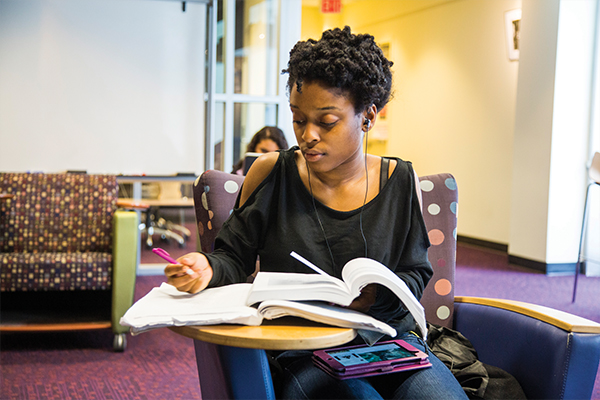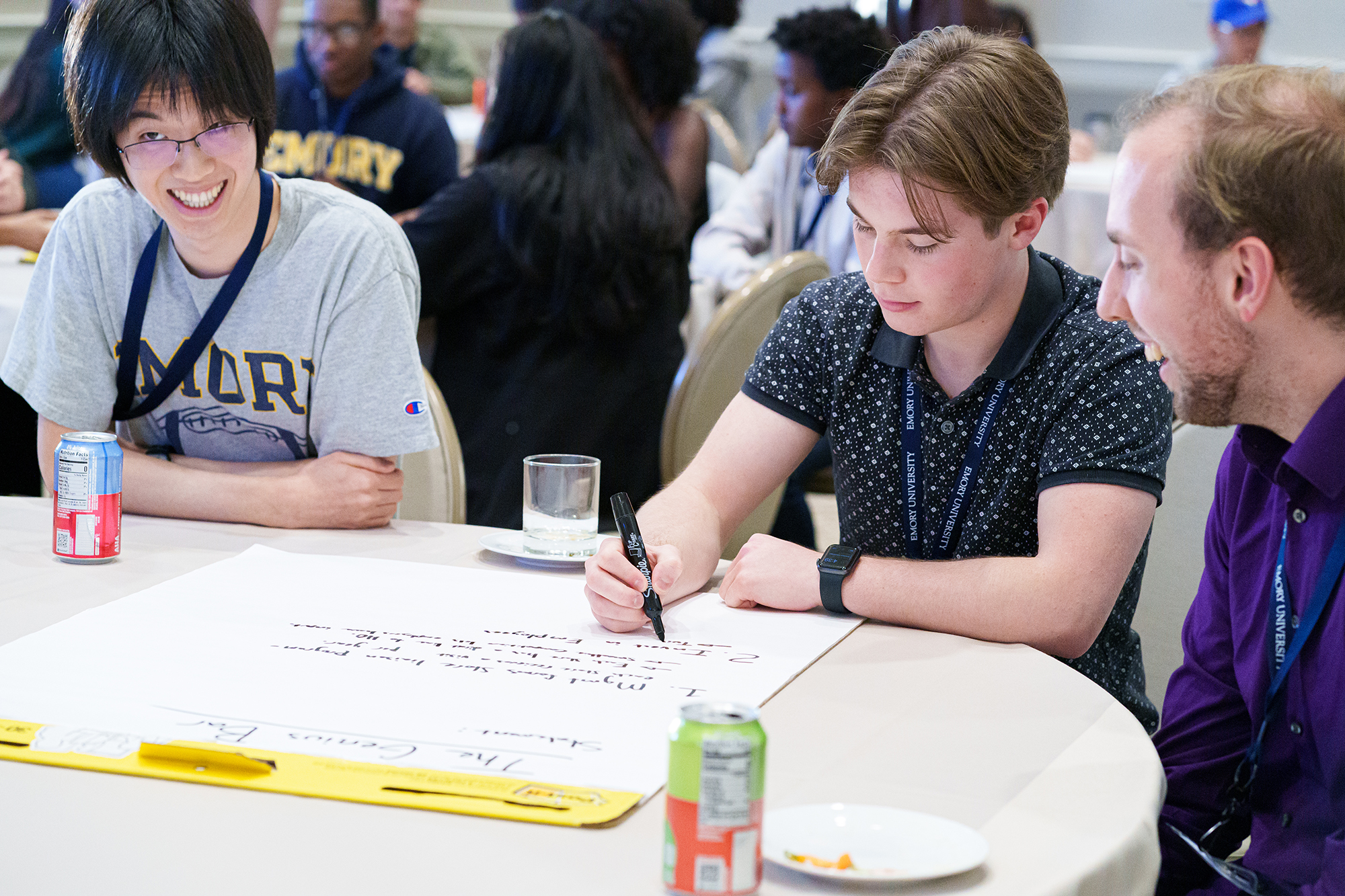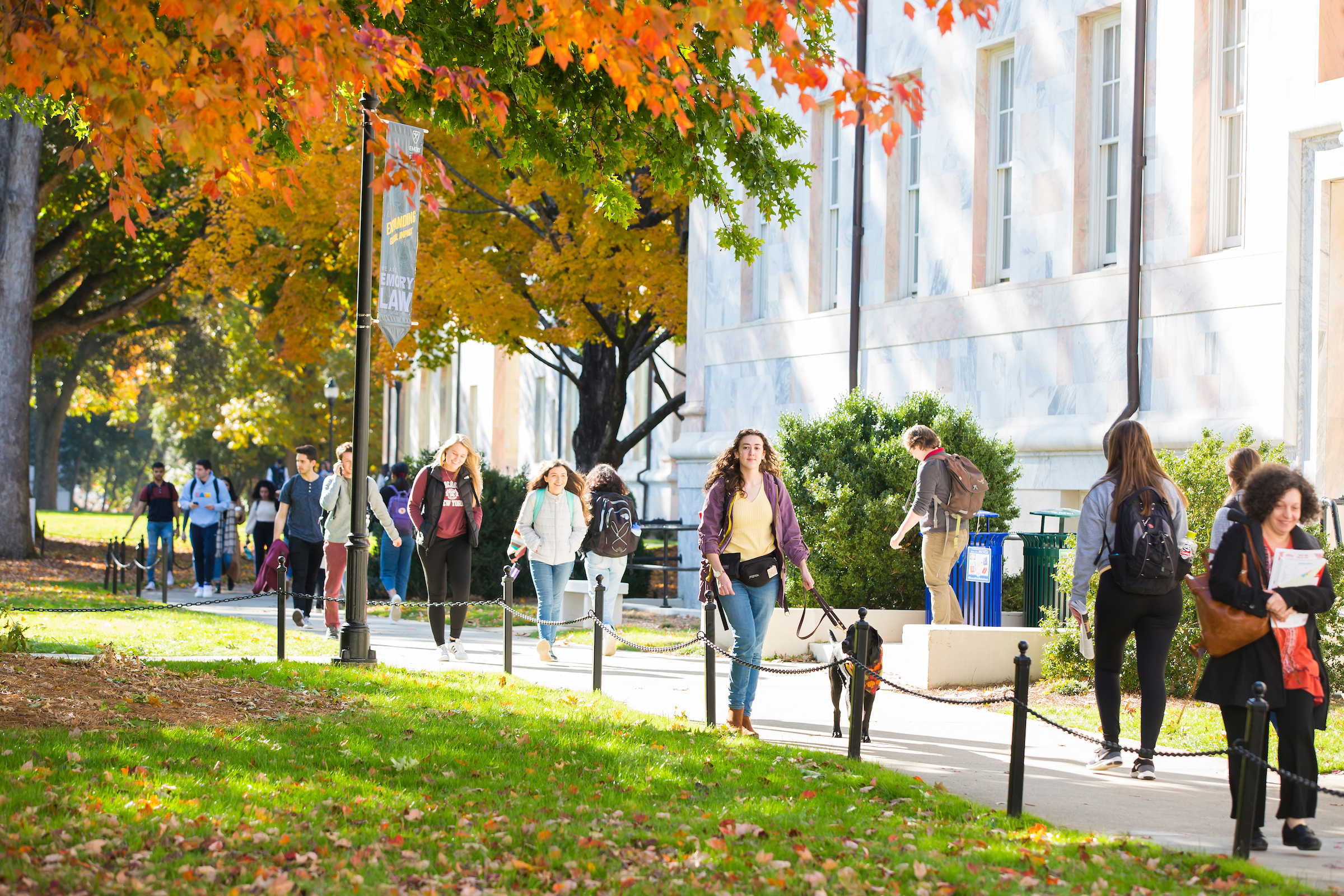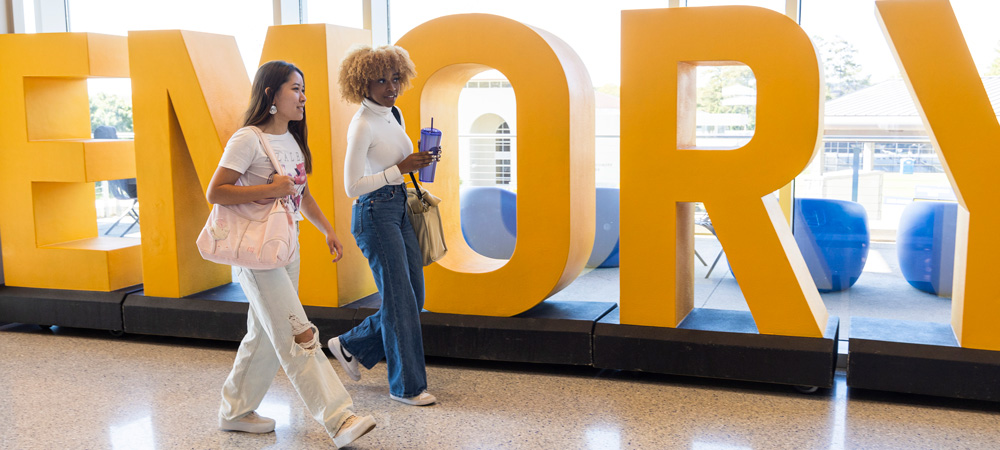Emory's merit-based scholarships empower students. Beyond prestige and financial aid, Emory University’s Scholar Programs provide…
Strong Personal Statements, Part 2: Connect Literature with your Narrative

We’re sharing exceptional personal statements from last year’s applicants to illustrate that a good personal statement can be on a variety of topics, but ultimately, showcases the student’s character, curiosity, and voice. These statements, written by students now enrolled at Emory University, were selected for a multitude of reasons, and we asked our admission staff to share what made each statement stand out.
This is one of a 5-part series on application writing; read Part 1 here, Part 3 here, Part 4 here, and Part 5 here.
Discuss an accomplishment, event, or realization that sparked a of personal growth and a new understanding of yourself or others.
I first contemplated the concept of futility when I read the poem “I Saw a Man Pursuing the Horizon” by Stephen Crane.
“I saw a man pursuing the horizon;
Round and round they sped.
I was disturbed at this;
I accosted the man.
‘It is futile,’ I said,
‘You can never- ‘
‘You lie,’ he cried,
And ran on.”
I can relate to the narrator’s initial unease. It’s uncomfortable to confront futility. When I first met Paul, I hid that discomfort behind a polite mask. Paul has Alzheimer’s disease. He does not remember where he lives, or whom he loves. I must have reminded him of my name more than twenty times on one cloudy summer afternoon. He did not remember my name, but I will always remember the things he taught me.
Paul is a member of the St. Francis Episcopal Church. Every August, the church organizes the St. Francis Fair, a community event featuring barbequed food, fresh blueberry pie, and displays of old cars. The main attractions, however, are shielded from view by rows of white tents. Inside, an assortment of donated items sell for bargain prices. All proceeds benefit the church.
Before being displayed at the fair, donated items must be collected from private homes. These houses are sometimes quite far apart, and traveling between them is almost always an all-day affair. Paul took on this task without complaint. I volunteered to go with him.
Paul’s attitude gave no indication of his terminal illness. As we departed his driveway, he asked me who I was and where we were going. I summarized our situation. “It’s wonderful that we are doing this for people,” he replied. This conversation and its derivatives would continue throughout our trip. I once exited a house carrying a large ceramic vase, only to find that Paul was attempting to put his car in reverse. When he saw me, he asked me who I was. “I’m Matt,” I said. “Are you sure you want to keep going?”
As I returned to the passenger seat of Paul’s truck, it occurred to me that he never objected to what we were doing. Every time I told him about the St. Francis Fair, his facial expression changed from confusion to gratitude. He knew that he was making a difference in his community, and he felt proud to be helping others.
Paul had no qualms about pursuing the horizon. He was aware of his condition, and yet chose to see the best in every moment. I now recognize that it is a choice to view something as futile. I understand the improbability of creating widespread change in a time as brief as the human lifespan, but choose to pursue it anyway, knowing that any positive impact I can make will have been worthwhile.
Feedback from Admission Staff
As we read applications, each student has a team of admission staff assigned to their file to review it and assess the student’s potential. The staff responsible for this student’s file had this to say about the personal statement:
This personal statement tells a story which allows us to get to know the author. In a way, they are showing us and not telling us, their experience as a high school student. Additionally, this writing demonstrates how the student has connected with an academic area, history in this case, and how history has enlightened his awareness of the world. Perhaps the story is a bit lengthy and meandering. But it illustrates a desire to make connections between the student’s interests and experiences, which is fundamental in the study of the liberal arts and sciences.
Don’t hesitate to connect with us by posting a comment to this blog, tweeting us @emoryadmission, or emailing us at admission@emory.edu. We look forward to hearing from you!



This Post Has 0 Comments